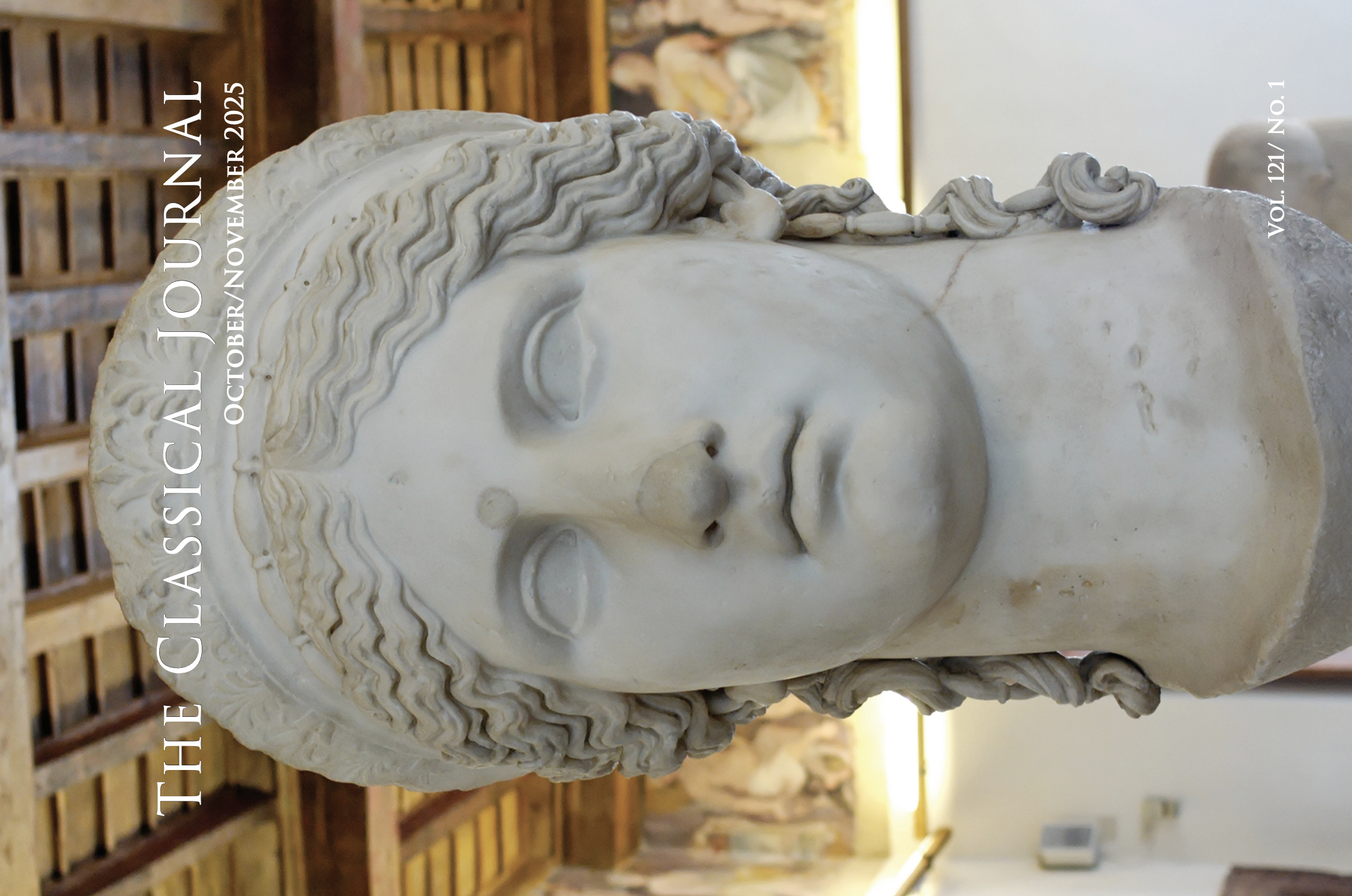The following articles are contained in CJ
117.3
Abstracts of Articles
Ovid and the Magic Doll: Witchcraft and Defixiones in Amores 3.7
This paper explores the depiction of magic in Amores 3.7, an elegy in which “Ovid” suffers from impotence and wonders if a witch is to be blamed for his predicament. Adding to existing metapoetic readings, I argue that the poem combines allusions to famous witches from earlier Greco-Roman literature with detailed evocations of actual rites that are familiar to us from the material record, such as the piercing of magic dolls and the casting of binding and separation spells. These acts were meant to cause the same deathlike sensations that Ovid experiences in Am. 3.7, which means that—even though the poem ultimately calls the efficacy of magic into question—it nevertheless provides a “realistic” portrayal of these spells’ imagined effects.
ΛΟΓΟΙ ΔΥΝΑΜΕΝΟΙ ΤΗΝ ΣΗΝ ΑΡΧΗΝ ΩΦΕΛΕΙΝ (SPEUS. PHIL. 8): THE POLITICAL USE OF MYTHICAL HISTORY AT THE MACEDONIAN COURT DOWN TO THE AGE OF PHILIP
A passage from Speusippus’ letter to Philip underlines the value of the myths presented by the Athenian thinker in his missive as λόγοι δυνάμενοι τὴν σὴν ἀρχὴν ὠφελεῖν, that is, useful arguments for the king’s rule. Speusippus’ words are by no means trivial, considering that myths played a significant role as a political instrument in the Macedonian court since at least the reign of Alexander Philhellene, as Herodotus shows. Besides addressing the development of the mythical narratives related to the remote past of the Argead dynasty, this paper analyses the political use that the Macedonian rulers made of them and their successive adaptation to the necessities of the Argeadae, as well as the role that the Greek writers linked to the court played in shaping myths that, as Speusippus pointed out, became propagandistic λόγοι in the service of the Macedonian interests.
Familial Pity in Greek Tragedy
In this article we analyze explicit expressions of pity among family members within Euripides’ Iphigenia at Aulis and Sophocles’ Electra with particular attention to the closeness of individuals involved and the merit for misfortune, two categories informed by Aristotle’s definition of pity in the Rhetoric. Instances within these plays suggest that a type of estrangement exists between pitier and pitied while the question of whether one’s misfortune is merited can be ignored in favor of assumed obligations to kin. This inter-pretation sheds light on the instance of pity found between father and son in Aeschylus’ Persians.


